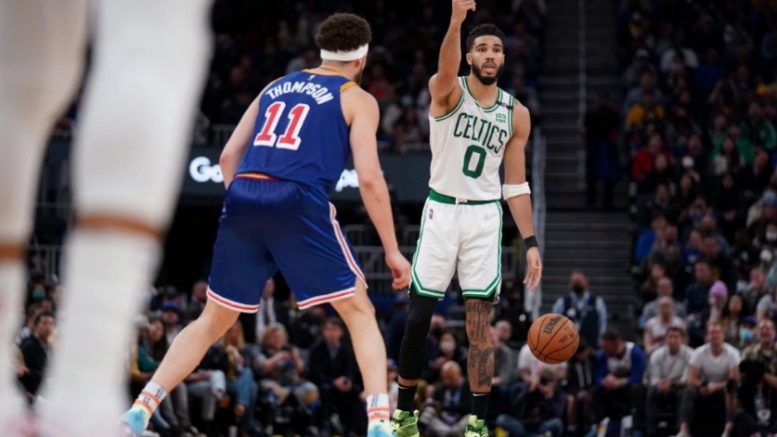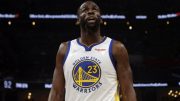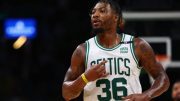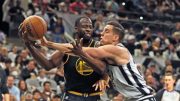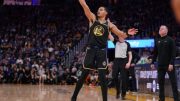The Celtics and Warriors have shown that you don’t have to spend years tanking in order to pick a winner.
The NBA Finals pit the Boston Celtics against the Golden State Warriors, and both clubs have a lot on the line. Only four teams have ever won four titles in eight seasons: the Minneapolis Lakers in the 1950s; the Boston Celtics in the 1960s; the Los Angeles Lakers in the 1980s; and the Chicago Bulls in the 1990s.
Winning the series would give the Celtics 18 championships overall, one more than their hated rivals from Los Angeles. The two teams have more in common than just a desire to make history. Their compositions are similar yet different at the same time.
This postseason, both Boston and Golden State devote over 70% of their minutes to “homegrown” players, who have only played for one team in their careers. Derrick White, Andrew Wiggins, and Derrick Rose are not homegrown, while Steph Curry and Jayson Tatum are.
The Celtics and Warriors are far ahead of the average of 47 percent among all the 16 playoff clubs. It’s easy to draw a simple conclusion from these figures: clubs that pick well and develop their own players have an advantage over those who don’t. Is this, however, the case?
From the 2008 to 2012 seasons, Golden State missed the playoffs five times in a row. During that time, they selected Curry and Klay Thompson in the middle and late rounds of the draft, as well as Draymond Green in the second.
The haul Boston received from the 2013 trade that sent Paul Pierce and Kevin Garnett to Brooklyn, as well as the 2017 draft night swap with Philadelphia, landed them Tatum and Jaylen Brown, roughly the haul you’d expect from a team that spent years tanking; the Celtics drafted Marcus Smart the one year they missed the playoffs, in 2014.
So the connotation is clear: if you lose badly enough, fate will smile on you. Right? Not so fast, my friend. The Process 76ers, the most famous tankers in recent memory, have yet to go past the second round of the playoffs. Joel Embiid is the only player left on their team after all those squandered years.
The fate of Philadelphia is more typical than that of the Golden State. Since the start of the draft lottery era in 1985, a total of 23 NBA teams have missed at least five consecutive postseasons a total of 34 times. That’s a large enough sample size of history and diverse organizations to detect any trends. A few stand out.
Without multi-year tanking efforts, the Celtics and Warriors were able to acquire draft capital
Only three of those 34 stretches of ineptitude resulted in a team winning a championship with talent drafted during their time in the desert: the Celtics missed the playoffs every year from 1996 to 2001 and landed Paul Pierce as a result; Cleveland was out every year from 1999 to 2005 and landed LeBron James; and the Warriors drafted Steph and Klay during their time in the desert.
Only the Allen Iverson Sixers and Devin Booker Suns are added to the list when the search is expanded from winning it all to reaching the Finals. A yield of five out of 34 does not appear to be promising.
If you lower the bar, you’ll notice that it’s still rare for a team to remain poor for years and still have any wins to show for it. Only 16 of the 34 examples examined saw teams win 50 games in a season with players they personally drafted, and the impact those players had on success varied greatly.
It’s one thing to credit Carmelo Anthony with leading the Denver Nuggets to a 50-win season; it’s quite another to give Kirk Hinrich, Shane Battier, and Stromile Swift the same credit.
Repeated lottery appearances provide an organization with extra scratch-off tickets. But consider this: if you buy a ticket and win a prize, but the gift is a free ticket to try again, what exactly have you won?
You’re just stacking awful odds on top of bad odds. Since 1985, a team has missed five or more playoffs in a row 34 times. In those 34 eons of losing, do you know how many times they drafted a top-75 player? Seven.
Iverson, Pierce, LeBron, Steph, Carmelo, Garnett, and Jason Kidd are some of the best players in the NBA. That is all there is to it. Do you want to include all-NBA players? Welcome to the team, Derrick Coleman, Andre Drummond, Karl-Anthony Towns, and Blake Griffin. Everyone is present.
If there is a silver lining, it is that it appears that losing long enough guarantees the appearance of an All-Star. During 22 of the 34 losing seasons, the franchises drafted an All-Star player. If superstars win championships and are paired with other superstars, it’s possible that clubs may continue to lose.
It’s been known for a long time that winning is a combination of ability and luck. The Timberwolves possessed two lottery picks and needed a point guard the year Curry was available for the draft. Ricky Rubio and Johnny Flynn were taken.
In order to land him, Boston wanted Philadelphia and the Lakers to prefer Markelle Fultz and Lonzo Ball over Tatum. On those nights, luck smiled on this year’s NBA Finalists, and they’ve worked hard since then to develop two teams worthy of the stage. Maybe the luck you get equals the luck you make in the end.

